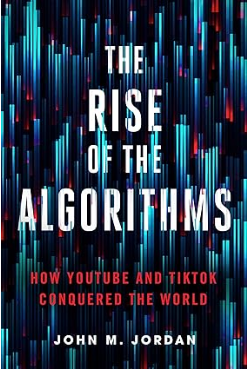Has a year gone by already? My watch must be slow. In any case, it’s time once again to roll out our annual review of CapitalSpectator.com’s weekly Book Bits column and choose a few of the more intriguing titles from the archives. As usual, we’ll revisit ten books that appeared on these pages during the course of the year that’s rapidly winding down — titles that, for one reason or another, caught your editor’s eye and deserve another look before we put a fork in 2024. We’ll start with five today, followed by the balance in a week. Happy reading

● Slow Burn: The Hidden Costs of a Warming World
Robert Jisung Park
Review via International Monetary Fund
As the world warms, anxiety over the effects continues to rise. A survey conducted by the United Nations found two-thirds of the global population believe that climate change is a global emergency. Fears abound on the risks of triggering tipping points in the climate system, such as the melting of ice sheets or the release of underground methane. But alongside future risks of climate catastrophe, there are also slow-burning effects already being felt around the globe. In Slow Burn: The Hidden Costs of a Warming World, environmental and labor economist R. Jisung Park documents these effects, from the expected, like worsening inequality, to the unexpected, such as declining productivity and economic growth.
 ● The Rise of the Algorithms: How YouTube and TikTok Conquered the World
● The Rise of the Algorithms: How YouTube and TikTok Conquered the World
John M. Jordan
Summary via publisher (Penn State U. Press)
The meteoric rise of online video is reshaping the competition for human attention. The Rise of the Algorithms argues that this new technology has changed the way we interact with others, our relationships with public institutions, and our very own behaviors and psyches. In tracing the origins and evolution of online video, John M. Jordan examines the mechanics—and the ethical stakes—of online video platforms, especially YouTube and TikTok but also others, such as Twitch. Tracing the use of algorithms pioneered by Facebook and Google and so successfully exploited by TikTok’s corporate parent, ByteDance, Jordan shows how these platforms now engineer human behavior—with consequences for culture, politics, and identity. Jordan argues that we are at an inflection point. Until now we have proved, as a society, ill-prepared or unwilling to address such problems as the power of digital platforms, the personal cost of viral celebrity, the invasion of privacy, and the proliferation of disinformation.
 ● The Coming Decline: A World Without Economic Growth
● The Coming Decline: A World Without Economic Growth
Michael Weidokal
Summary via publisher (International Strategic Analysis)
The new book from ISA Executive Director Michael Weidokal, The Coming Decline: A World Without Economic Growth, is now available for purchase.
This book explains how the world is slowly, but surely, facing a future in which economic growth is no longer assured. In fact, growth has already been trending downwards in most of the world’s most important economies, a fate that most of the rest world is likely to face without a massive transformation of the economy and our society.
From the Roman Empire to the modern day, The Coming Decline uses a wealth of historical examples to show readers why economies decline, and what this means for the future of our civilization. Readers will learn why our global economy is in danger of entering a period of stagnation and decline, and what this means for our future.
 ● False Prophets of Economics Imperialism: The Limits of Mathematical Market Models
● False Prophets of Economics Imperialism: The Limits of Mathematical Market Models
Matthew Watson
Summary via publisher (Agenda publishing/Columbia U. Press)
This book studies the methodological revolution that has resulted in economists’ mathematical market models being exported across the social sciences. The ensuing process of economics imperialism has struck fear into subject specialists worried that their disciplinary knowledge will subsequently count for less. Yet even though mathematical market models facilitate important abstract thought experiments, they are no substitute for carefully contextualised empirical investigations of real social phenomena. The two exist on completely different ontological planes, producing very different types of explanation.
 ● The Singularity Is Nearer: When We Merge with AI
● The Singularity Is Nearer: When We Merge with AI
Ray Kurzweil
Review via The New York Times
In “The Singularity Is Nearer,” Kurzweil promises that, by 2029, A.I. will be “better than all humans” in “every skill possessed by any human.” During the 2030s, solar power, enhanced by A.I.-driven advances in 3-D printing, will come to dominate the global energy supply, most consumer goods will be free, and the “dramatic reduction of physical scarcity” will “finally allow us to easily provide for the needs of everyone.” Sounds rad!
Enter the blood robots. Have no doubt: “The long-term goal is nanorobots.” One day next decade, Kurzweil believes, you and I will feed nanobots through our capillaries. The little busybodies will swim to our brains, where they will connect our neocortex to the cloud, allowing us to expand our intelligence “millions-fold.” This is “the Singularity.”